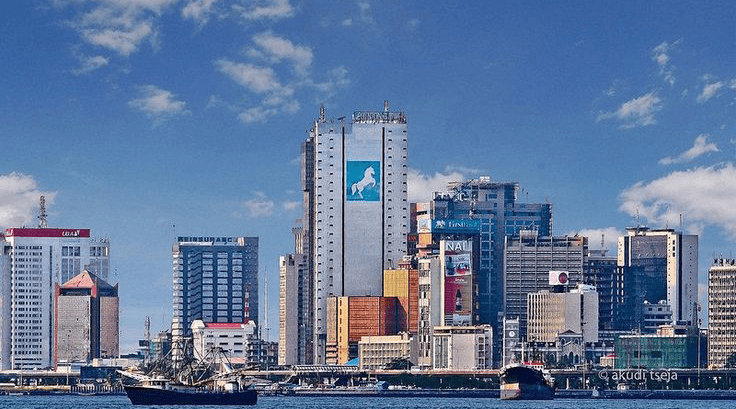Startup Business Challenges in Nigeria: The Good, The Bad and The Ugly
Why Few Business Startups Survive and Flourish

Thousands of budding entrepreneurs in Nigeria startup new businesses daily and they all face a myriad of challenges. Many startups fail soon after they commence business operations. Very few grow modestly but soon shrink and die. Some large corporates also come into Nigeria and face similar challenges as locals. Some soon pack up and leave. Few survive and flourish. Why is this the case? Why are startups dying in Nigeria? Is it worthwhile doing business in Nigeria?
Reasons Why Startups Fail or Survive
There are many contributing factors but this article focuses on the key issues. Business success depends on the objective of the business . If just to satisfy a personal ambition without any real need for the product or service, or if to do what others are already doing without any real value added, then the business will struggle and eventually fail. However, if the business is based on meeting a real need in the market, filling a gap or creating a niche in the market to satisfy demand for such, then the business will have a stronger chance of survival.
In both instances, there are systemic challenges that must be conquered including funding and access to FX, as most businesses in Nigeria are highly import dependent. So your business, at whatever level, will be affected by the value of the Naira.
Another key factor is quality . There are far too many quacks in Nigeria including products, services and people. Far too many people are grossly underqualified for what they are doing and the inevitable end result is poor quality. Are you in business just for the sake of bing in business or are you determined to deliver the best quality possible? High quality is synonymous to success. But you must also conquer other challenges.
The problems are further complicated by a hurried focus on short term gains rather than developing a strategy for long term vision.
Poor business gambit including budgeting, operational and strategic planning, marketing, leadership, management technique, training & development, working in isolation or hiring cheap incompetent staff, can make or mar your business sucecss. Furthermore, attitude and lack of ambition is a big downer as demonstrated by some HG solar power bank distributors. Being overtly driven by a high desire for quick business gains without risks is not a sustainable business practice. Broader systemic factors affecting startup failure or survival include liberalisation of infrastructure particularly electricity generation and distribution as well as government policies on business processes.
In terms of business process, the Federal Government issued a Presidential Executive Order No. 001 of 2017, signed by the then Acting President Prof Yemi Osinbajo on the Promotion of Transparency and Efficiency in the Business Environment. The policy implementation/management rests on The Presidential Enabling Business Environment Council (PEBEC) , set up in July 2016 to “remove bureaucratic constraints to doing business in Nigeria. In addition to that, make the country a progressively easier place to start and grow a business”. There are other excellent policies but they are mostly ineffectual because the operators are full of old habits that inhibit success.
An example of this is the Central Bank of Nigeria (CBN). The apex bank introduced a new policy in circular TED/FEM/FPC/GEN/01/003 dated 18 April 2017 - Foreign Exchange Payment For Small-Scale Importation – as part of its efforts to ease documentation requirements and improve access to foreign exchange by SMEs. The Executive Order was on transparency and improving the business environment in Nigeria. This implies clear service level agreements, clear evidence of performance evaluation and complaint procedure. The CBN circular lacks clarity in this regard.
The government is making concerted efforts to root out corruption. But it seems certain individuals are hell bent on thwarting such efforts. It has been demonstrated that some people inside the CBN expect you to “come and see us” if you want your application to be processed swiftly otherwise it will be buried in the system. This is neither acceptable nor sustainable. Such behaviour lead to failure of businesses. Therefore a structure must be put in place to identify and prosecute such individuals in order to preserve the integrity of the system and the government’s efforts.

Starting a Business in Nigeria - The Good
To all intents and purposes, Nigeria is (and should be) Africa’s largest economy by far. Aliko Dangote will tell you Africa (Nigeria) is the best-kept secret. There has to be a good reason for such a strong statement. There are big opportunities for business in Nigeria and the country is endowed with great climate, plentiful natural resources and cheap labour. Yes there are hurdles to leap over as is the case everywhere in the world in addition to local hitches, but the potential reward for doing business in Nigeria is unimaginably great.
It is important to understand and respect local laws, politics, available infrastructure and related challenges; and ensure you do the right thing alway always. It would be a big mistake to be too sanguine about these factors relative to your background. Also plan for uncertainty and test your contingency plans regularly. Never assume that people are ignorant. And certainly never misconstrue their ostensibly overt respect for idiocy. Don’t try to bend the rules or conform to unethical practices. Doing that will hurt you. Conform to good governance and corporate social responsibility. They will in turn pay you back in future, even positively impacting your market capitalisation.
It is a good idea to work with good local partners. Nigeria has a big and rapidly urbanising population of circa 180 million hence a big market and compelling prospect for entrepreneurial ventures. An example I normally cite is MTN . When they launched in Nigeria (made the first ever GSM call on 16 May 2001), many had doubts about viability and survivability. But MTN’s rapid success was astonishing. Today, over half of MTN Group’s revenue comes from West Africa (55% in 2016) of which 32% was from Nigeria. 29% was made in South Africa. The MTN Group currently has 210 million subscribers in 22 countries across Africa and the Middle East. They say over a quarter of this total - 55 million subscribers (26%) - are in Nigeria. However, 2017 data from the Nigerian Communications Commission (NCC) shows that subscribers declined from 60.3 million at the end of the first quarter to 52.2 million at the end of December 2017.
MTN was recently fined USD5.2 billion by the Nigerian government after protracted warnings, for unreasonably failing to disconnect 5.2 million unregistered or inappropriately registered subscribers – a government policy of SIM card data harmonisation which locals hail as excellent effort as part of the overall national security policy and fight against terrorism, fraud, kidnapping, corruption and money laundering. The fine was later reduced to USD3.9bn and subsequently to USD1.7bn. There have been much ado about this without equivalent examination of the root cause and its implication, especially in South Africa. An agreement was reached to pay the fine over three years.
For both local and international investors, Nigeria remains a growth prospect despite the challenging environment.
Starting a Business in Nigeria - The Bad
There is a great lack of support for start-ups businesses in Nigeria, particularly from the banks. And where you get support in the form of a loan, the cost tends to be onerous. But it is reflective of how the banks perceive the systemic risks they are exposed to. In the end, what goes around comes around and you end up in a loop ensuring the economy remains in a comatose state or declines.
There are several challenges to doing business in Nigeria including failure of infrastructure and legal system. But I think that the greatest is lack of trust in the system. It seems Everyone thinks that given the chance, Someone will do a “sharp one” on Anyone. Everyone thinks that Anyone can take advantage at any time and in the end Nobody trusts Anyone.
This has resulted in systemic failure of trust. Failure of people-people trust, people-government trust, government-people trust, people-corporates trust and vice versa, corporates-government trust and vice versa. The typical de facto stance is therefore to trust no one. And unfortunately far too many that have trusted have ended up being burnt, further exacerbating the problem. That’s not good for any society. However, there are few that have trusted and achieved phenomenal success in business.
There has to be a way of restoring confidence in the system. And that’s ultimately the responsibility of the government.
Starting a Business in Nigeria - The Ugly
The biggest business challenge in Nigeria is corruption and failure of ethics both in government and the private sector. Corruption adds to the cost of doing business, slows business down and exposes investors to operational difficulties and legal risks they’d rather avoid. This means that keen investors are forced to demand bigger margins to cover their loses. The implication for consumers is that prices are jerked up. And ironically, the higher prices apply downward pressure on sales volumes. This further limits the ability of businesses to grow.
Nigeria also suffers from structural problems in the way the different regions relate with each other. There’s also religious intolerance, threat of militants in the Niger Delta and scourge of terrorism in the north. Recently, there have been deadly skirmishes between farmers all over the country and nomadic Hausa-Fulani cattle herdsmen who traverse the country. The consequence has been staggering losses for Nigeria and the effect imposes a tough limitation on business growth in Nigeria.
Despite the challenges, I believe that there’s something about Nigeria that’s yet to be discovered. Aliko Dangote may well be right - Nigeria is the best-kept secret. See how well MTN are doing in Nigeria.



